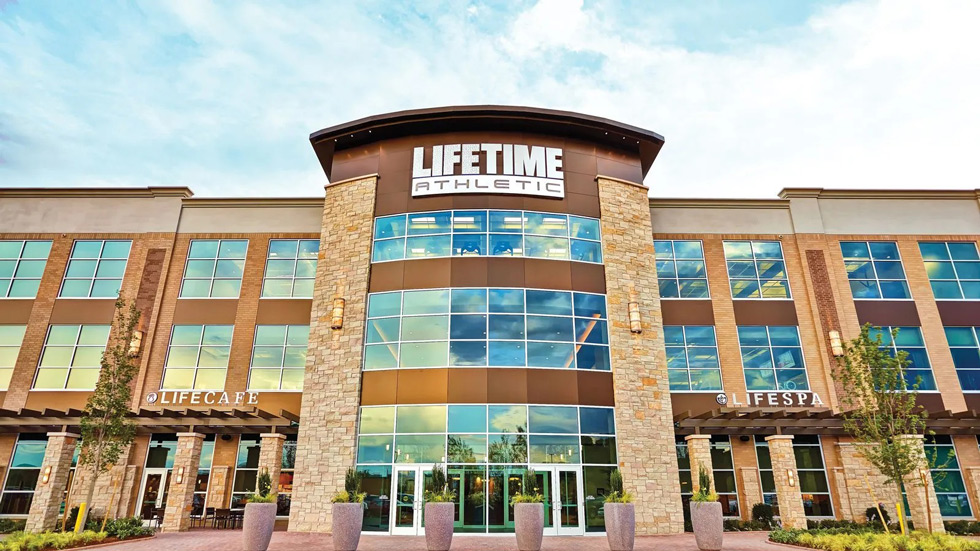Spirit Realty CEO Jackson Hsieh has overseen a wholesale transformation of the net lease REIT under his watch.
Walking away from the opportunity to take over his father’s successful architecture practice in favor of a position in the real estate group of a large Wall Street investment bank was a pivotal decision for Spirit Realty Capital, Inc. (NYSE: SRC) President and CEO Jackson Hsieh, who believes that in order to truly succeed you must have passion for whatever career path you choose.
Training as an architect at the undergraduate and graduate level did give Hsieh a grounding in three-dimensional problem solving, but after completing his studies he knew that ultimately it was not what he wanted to pursue. The opportunity to work for a real estate developer during graduate school, which involved leasing up a vacant office building as well as pre-development work, set the wheels in motion.
“I loved designing buildings and I still have that passion today, but what I learned working in the business of architecture is that I really wanted to be on the ownership side or on the developer side of that asset. I wanted to be the one that determined the course of the design and the leasing, and how things were financed, versus just being in one part of that building’s puzzle,” Hsieh says.
Despite receiving job offers from real estate development firms, Hsieh decided to work for the real estate group at Salomon Brothers, Inc. in 1987. “My investment banking career actually was really quite a surprise to me. I didn’t plan on doing that and it also surprised me by the amount of years that I stayed in the business.” After 30 years on Wall Street, in various roles, Hsieh made another transition—this time to the c-suite.
Hsieh recently spoke with REIT magazine about the changes underway at Spirit Realty, how net lease has evolved over the last decade, and why golf has untapped potential, among other issues.
What were your initial thoughts about heading to Wall Street rather than accepting an offer in a real estate development firm?
I remember speaking to a couple of alumni from the architecture program who had switched over into the real estate business. I also spoke with Camille Douglas, who was at Olympia & York at the time. She told me that it was going to be very uncomfortable, but that I would learn a tremendous amount about finance that would help me when, ultimately, I got into a real estate company. So, I ended up taking that job and the funny thing was I had so much fun in that business. I spent almost 30 years in that career.
Another big career change was leaving Wall Street for Spirit Realty in 2016. What attracted you to this position?
When Spirit went public in 2012, I was one of the senior bankers working on the IPO. After the company completed its IPO, I was hired by another company as their M&A banker to try to sell the business. That company was Cole Credit Property Trust II, a public non-listed REIT with about $3.7 billion in assets. The long and the short of it was that I was able to get the former CEO of Spirit to enter into a $7.4 billion stock-for-stock merger agreement roughly three months after the IPO.
After that I was involved in most of the major capital market transactions for Spirit. The board knew me and obviously the management team knew me, so joining the company was a very easy fit when the timing was right. My prior years of working in investment banking and getting all that experience was actually precisely what Spirit needed when I joined.
During my banking career, I had experience building global real estate teams at UBS and at Morgan Stanley. I was also completing high profile merger and restructuring assignments. Getting all kinds of different experience, watching people make good decisions, watching decisions that were not so good, was just a great laboratory for me to learn from.
Was there anything you weren’t exactly prepared for?
One of the things I hadn’t had experience in before Spirit was buying commercial real estate. It really took me constantly asking a lot of questions, asking the right questions, and then developing confidence and finally demonstrating a successful investment track record for our shareholders and board. That took time, but I believe I’ve developed that since I’ve been here.
What were some of the initial tasks you faced when joining Spirit Realty?
Those first several months were a really important time for me. I was able to identify numerous areas for improvement in processes and to utilize more technology to help us make better-informed investment decisions.
During that time, we started to make significant process and senior personnel changes for the company. We changed our head of acquisitions, head of research, head of credit, head of asset management, and CFO. It was quite a substantial change.
Today we are a very efficient, very informed team with the ability to make decisive decisions based on changing market conditions. Executing all these spinoffs and personnel moves all at the same time was something that really brought about the current leadership team that we have today. I’m quite blessed to have this leadership team that I work with around me.
How important was the spin-off of SMTA REIT in 2018 in terms of where Spirit sits today?
The successful $2.9 billion leveraged spinoff and sale of SMTA and the $1.1 billion sale of other non-core real estate assets was actually crucial and probably one of the most important things that I and my team have done for shareholders.
By September 2019 the company was a little bit smaller. We were at $421 million in rents versus $600 million prior to the spin-off, but those rents were primarily from larger or more financially robust tenants. At that time, approximately 48% of our rental income came from publicly listed companies. We had very little secured debt and our debt to EBITDA was four times versus six-and-a-half times previously.
Can you talk about how Spirit’s portfolio has evolved during your tenure?
Since I joined, we’ve acquired $4.8 billion of real estate assets using our proprietary ranking process and technology tools. Of that $4.8 billion of assets, 55% were designated as retail assets. 32% were industrial, and 12% fell in the ‘other’ category. There’s been significant change, essentially it’s been a wholesale transformation of our business.
The share of large revenue, public tenants in our portfolio increased from 36.7% of rent in 2017 to 53.4% today. We’ve got better credit, better wherewithal, and more sophisticated operators. The top three tenants today are Lifetime Fitness, followed by Invited, formerly ClubCorp (an owner and operator of private golf and country clubs), and then BJ’s Wholesale Club. It’s a very stable, diversified portfolio.
What changes have you seen in the net lease sector over the last decade?
Ten years ago, net lease property acquisitions, particularly in the retail area, were largely dominated by public non-listed REIT platforms. CMBS debt was really only possible for net lease assets that had over 10 years remaining on their lease. It was really a more challenging financing environment for net lease assets.
Fast forward to today and liquidity in the public and private institutional and exchange buyers has increased dramatically for the net lease asset class. Today you’ve got sale-lease back financing structures that are available as a source of capital for operators in very heavy real estate-intensive businesses such as freestanding retail, light manufacturing, distribution, flex office, casinos, water parks, and golf.
It’s really a much more functional type of market between real estate owners today in the net lease space and what I call best-in-class operators. That’s why I believe that, even in changing economic environments, the performance of this asset class is going to be better than people expect.
Earlier this year, Spirit Realty unveiled its inaugural ESG report. What are some of the key achievements for the company in this area?
Last year, we started to make some meaningful strides on our ESG practices. We hired HXE Partners to help us create a long-term ESG roadmap, began adding green lease language to new deals, we created an ESG steering committee with board oversight, we adopted SASB and TCFD disclosure, and created other numerous internal and external social initiatives throughout our organization.
What sort of work model has Spirit Realty adopted today?
We have 100% mandatory in-office attendance every week for Monday, Tuesday, and Wednesday; Thursday and Friday are remote workdays.
We’re still doing COVID testing. We did require everyone in the company to get vaccinated and I’m sad to report that we’ve had a positive employee test every week since Memorial Day. I think each company is adjusting the way it conducts its business to meet their individual challenges.
Our business operates quite efficiently in a fully remote structure. We did it during the depths of COVID and were able to be really nimble, but I and senior management were really concerned that our company culture would start to deteriorate if we stayed remote. We think we’ve struck the right balance of three days in, and two days remote, but it’s something we continue to evaluate.
Are shifts in home/worklife patterns having any direct impact on your tenants?
I do believe that this shift has had a positive impact generally on our tenant base. Our assets in suburban locations are clearly the beneficiary of that increased remote work trend. When people are working at home they actually go to the gym, they go to the golf course. They’ll go out and do things because they have that flexibility and not that long commute.
Talking of golf, what potential does Spirit see here?
We’re constantly evaluating different industries that seem to have long-term upside potential. We identified golf as an area where we believed the industry would get a positive re-rating. What we saw was that the number of golf courses in the United States over the last 10 years had actually declined, while demand for outdoor activities was rising due to COVID.
If you look at the golf industry today you’ll see a whole new demographic entering the sport. A lot of new minority groups are starting, female golfers are taking up the sport, as well as junior players. In addition, the PGA is promoting the sport every week on television, which is great for the game. Topgolf driving ranges have also acted as a great feeder for the sport.
The Invited properties that we bought are all performing at an excellent level and we actually think there’s still more room for meaningful financial improvement. We expect to do more business with Invited. We’re looking at opportunities with them now, and we’ve been in discussion with other high-quality golf operators and expect to do more in the industry. We really like it. We think it’s got a lot of barriers to entry and we think cap rates are going to eventually start to go down in this business.
Would you consider investing in other sports, pickleball for instance?
We did look at a pickleball operator recently, but we weren’t as competitive on the price. My sense is that we’ll end up doing something there as we like that business, especially given the growth. Lifetime Fitness, our top tenant, is really embracing pickleball.
Do you have career advice for younger people or someone interested in making a career switch?
You have to stick with industries where you have passion. It really starts there. You’ve got to be able to take measured risks. You’ve got to work with people you respect and have common shared goals. You must never give up on yourself, and always think outside the box.
What would you say you enjoy most about this job?
I really enjoyed my career as a banker but I think the biggest difference, and what I love the most today, is that if I or my team have an idea that we think makes sense, we can actually move it forward. That’s a really big distinction. In this role, we get to make the call on what to buy, what to sell, what to finance.
What comes along with that is that you have to accept the consequences of these decisions and choices. I love being accountable. I also love working with great tenants and owners of operating businesses. And of course, there’s my team. They’re passionate about our business, our mission and goals, and they all really want to have a strong impact on the social and physical environment around us.
Finally, reporting to shareholders and our board of directors was something new to me. I actually get a lot of insight and feedback from those groups and that’s helped me, it’s challenged me to make better decisions and judgements.



